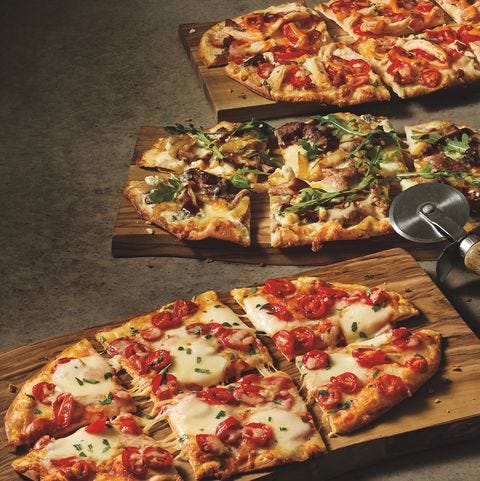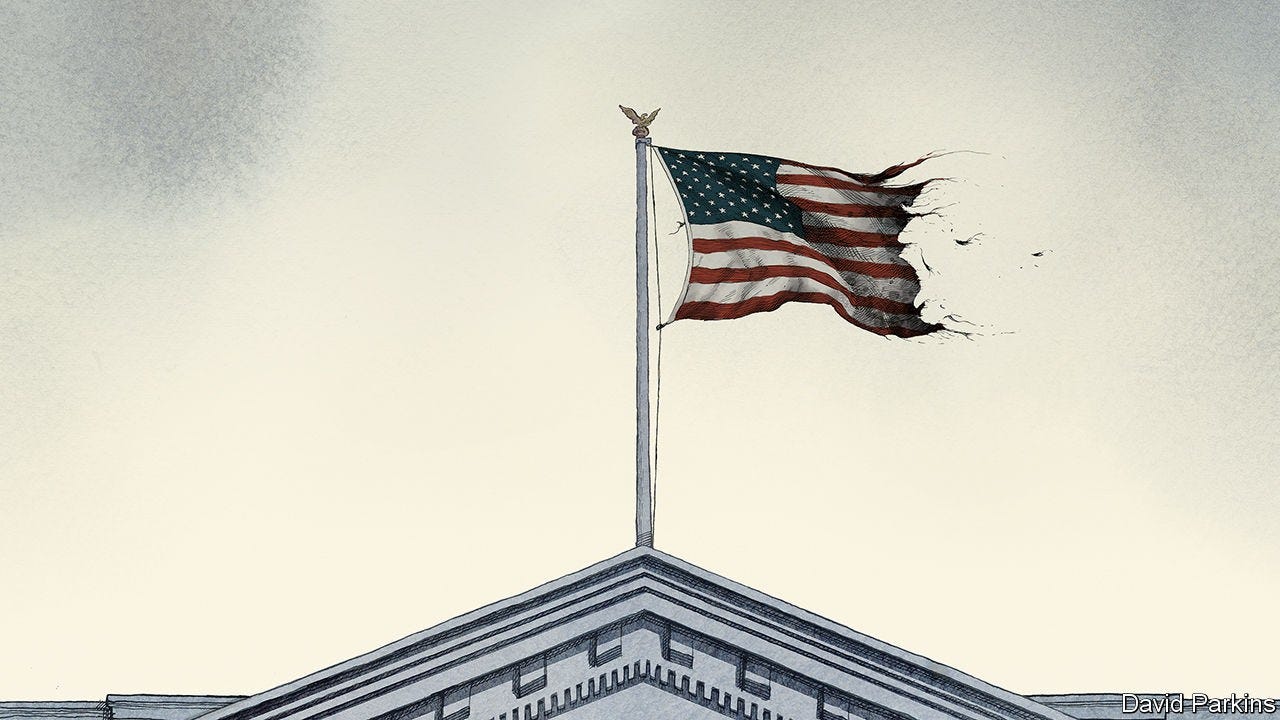Moments of Transition
Tippets by Taps #152: Burnout, Panera Pizza, QR Codes, Biden and more. Enjoy!
Happy Sunday! I hope the weekend has brought relaxation, rejuvenation, and some Halloween candy. A warm welcome to the new Tippets readers who are getting this for the first time! If you're reading this, not yet subscribed, and looking to receiving Tippets alongside the other similarly curious, intelligent people who've already subscribed, click below! 😄
Increased cynicism, irritability, and impatience. Finding it difficult to concentrate. Greater than normal consumption of alcohol. Lacking energy. These may sound like a typical day living in 2020. They are also tell-tale signs of burnout.
Over seven months into life with COVID the grand WFH experiment is showing signs of breaking. A recent survey of tech workers showed that almost 70% of employees feel more burned out than they did when they worked at the office. The lack of commute was supposed to make things better with less wasted time. Unfortunately, another recent study proved what we’ve been feeling this whole time. Instead of devoting the time to a hobby or unwinding, we all put it towards something we could do with less of: work. Based on the study, the extra time spent not commuting goes toward:
35.3%: Primary job
15.5%: Chores
11.1%: Childcare
8.4%: Second job
29.7%: Leisure activities
When COVID lockdowns first started I, like most friends of mine, loved the lack of a commute. I realize now the commute along with other transition moments - the walk back to my desk after a meeting, going to and from lunch, stepping out to Philz for a walking 1:1 - were important moments of pause. Opportunities to reset. Recalibrate. As the pandemic rages on, these resets have been whittled away to dust. We’re left with browser windows littered with Zoom ‘joining meeting’ tabs, using app loading and unmute time to try and remember the context for the meeting that is about to start. Remote work without these transitions makes it extremely hard to turn off the office. Sometimes it feels like we’re not working from home at all - we’re just sleeping at work.
This week I was reminded of advice a mentor gave me when my son was born. “No matter how your day has gone, once you get home your family needs you to be Dad.” He told me he used the sound of the car door closing to signal his brain it was time to show up for the family. I started using the car door sound myself. It served as a wonderful transition moment for me. Now, as we enter another month living with COVID and what is sure to be a hectic week ahead, I am attempting to prioritize alternatives to my ‘car door’ moment. I encourage you to find yours. Big or small, build them into your schedule. Be ruthless about protecting them. Find space for yourself. As nights get longer, days get colder, and challenges continue to mount, we’re going to need all the strength, fortitude, and hope we can muster.
Finding Hope When Everything Feels Hopeless
It can be difficult to be hopeful these days. We’re all exhausted. Burned out. Waiting for the next shoe to drop. Yet hope might be just the thing we all need. This WSJ piece offers some advice on just how to find some. The good part? Hope is malleable.
You can boost it. Scientists say it’s important that the area of the brain that activates when we feel hopeful—the rostral anterior cingulate cortex—sits at the intersection of the limbic system, which governs our emotions, and the prefrontal cortex, where thoughts and actions are initiated. This shows we have some influence over feelings of hope (or hopelessness).

Panera adds pizza to its menu to double down on dinner
Panera Bread continues to mix things up. After announcing subscription coffee earlier this year ($8.99/mo for unlimited joe), they’re now adding a fan favorite to the menu: pizza. This is a brilliant move for a number of reasons. First, because pizza is fantastic. Who doesn’t love pizza? If you ask me National Pizza Day (February 9th) should be a holiday. But I digress. Second, because it’s on-brand (technically pizza dough is bread). But, perhaps most importantly (and seriously), because it expands on the chain’s desire to feed you at dinner time.
Dinner makes up only 30% of the chain’s revenues. With fast-casual breakfast on the decline post-COVID, combining more lunch and dinner options with better technology for order and delivery is required to make it out of the other side of the pandemic in a position of strength. Panera’s already done well with delivery, having “doubled its delivery business year-over-year with more than half of its sales occurring out of stores.” Now, with Cheese, Margherita, and Chipotle Chicken & Bacon flatbread pizzas on the menu, they hope to satisfy your dinner time search for comfort food as well.

Ant and Covid have made the humble QR code a hit
This article was a wonderful read into the QR code and its humble beginnings.
Masahiro Hara developed QR codes in 1994 to track components in car factories. Having previously used barcodes to label components in plants, Denso Wave found they could be hard to use and are limited in how much information they can carry (typically 20 characters). Hara solved the data constraint by making the QR code a two-dimensional square instead of a horizontal strip which lets QR codes hold up to 4,200 characters, 210x that of a barcode. Every QR code also includes three squares at its corners that help scanners, whether they are phones or purpose-built devices, to rapidly focus and scan (that’s why they are called Quick Response Codes). Critically, Denso Wave had the foresight to realize that the technology could likely be useful outside of the car factory. The company didn’t enforce patent rights which let others adopt and adapt the technology for their industries.
The QR code is now ubiquitous across Asia and Africa, and quickly gaining popularity here in the US, particularly following COVID and the desire for contactless everything. We find them on boarding passes, menus, clothing items. With Ant Group, built on the back of QR code payments, about to go public in the largest IPO of all time, it’s safe to say the humble QR code is here to stay.

Why it has to be Biden
The US election is upon us. Finally. This week’s Economist offered a reasonable and objective look at the candidates. I encourage you to read it in full. And, for my American citizens, no matter your political allegiance, vote!
Mr Trump has fallen short less in his role as the head of America’s government than as the head of state. He and his administration can claim their share of political wins and losses, just like administrations before them. But as the guardian of America’s values, the conscience of the nation and America’s voice in the world, he has dismally failed to measure up to the task.
In the past four years he has repeatedly desecrated the values, principles and practices that made America a haven for its own people and a beacon to the world. Those who accuse Mr Biden of the same or worse should stop and think. Those who breezily dismiss Mr Trump’s bullying and lies as so much tweeting are ignoring the harm he has wrought.
When a president casts doubt on the integrity of an election just because it might help him win, he undermines the democracy he has sworn to defend.
Mr Trump has treated America’s allies with the same small-mindedness. Alliances magnify America’s influence in the world. The closest ones were forged during wars and, once unmade, cannot easily be put back together in peacetime. When countries that have fought alongside America look on his leadership, they struggle to recognise the place they admire.
That matters. Americans are liable both to over- and to underestimate the influence they have in the world. American military power alone cannot transform foreign countries, as the long wars in Afghanistan and Iraq proved. Yet American ideals really do serve as an example to other democracies, and to people who live in states that persecute their citizens. Mr Trump thinks ideals are for suckers. The governments of China and Russia have always seen American rhetoric about freedom as cynical cover for the belief that might is right. Tragically, under Mr Trump their suspicions have been confirmed.
A resounding Democratic victory would also benefit the Republicans. That is because a close contest would tempt them into divisive, racially polarising tactics, a dead end in a country that is growing more diverse. As anti-Trump Republicans argue, Trumpism is morally bankrupt. Their party needs a renaissance. Mr Trump must be soundly rejected.

Quote I’m thinking about: “Every word we speak or write matters.” - Elie Wiesel
If you have feedback on anything mentioned above or have interesting links/papers/books that you think would be worth sharing in future issues of Tippets, please reach out! Click the feedback link below, reply to this email, or DM me on Twitter at @taps.



